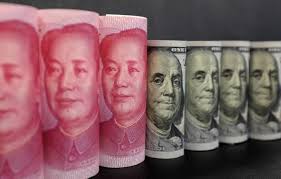Foreign exchange reserves of China fell by $9 Billion in November to $3.096 Trillion. The data was released by the Central bank on Saturday. Analysts have assumed that the foreign reserves for China would fall by around $4 Billion to $3.101 Trillion in November.
Despite the ongoing trade dispute against the US, the world’s second-largest economy has seen its foreign reserves rise since 2018 due to the tight monetary measures taken by the Chinese government and the inflows from global investors with an interest in buying Chinese stocks and bonds.
The recent dwindling of China’s foreign reserves was due to the fluctuations in the exchange rates and also due to the change in valuations of the assets in the form of foreign bonds. The value of the Yuan has also been through the ups and downs during the trade war with the US. The value of the Yuan was at its trough this summer as the tensions between the two countries were at its peak but on bounced back in the last three consecutive months on the back of a trade deal. This month again due to fresh tariffs from the US government and with no sign of the trade deal, the value of the Yuan had declined again.
The new tariffs imposed are due to take effect from December 15. So for this year, the value of the Yuan has declined by 2.3%. Another main cause was the fall in the gold reserves which fell to $91.47 Billion as at the end of November. It was at $94.65 Billion at the end of October.
China’s economic conditions have also worsened in the last couple of quarters but the country has taken measures to control it. It had been getting foreign inflows in currency from the global investors for its stocks and megaprojects. It had also reduced its dependency on the US dollar by strengthening its global currency reserves.
